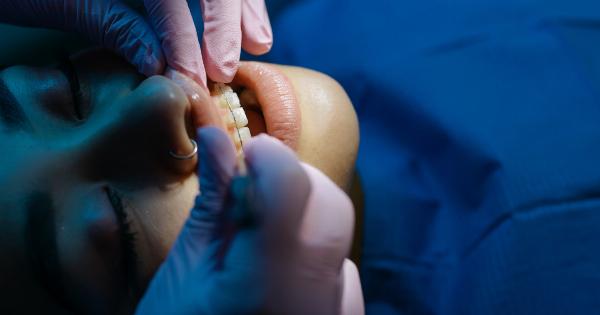Thyroid dysfunction is a condition that affects millions of people worldwide, particularly women. It occurs when the thyroid gland produces too little or too much of the hormones that regulate the body’s metabolism.
If left untreated, thyroid dysfunction can lead to a range of health issues, including those affecting the tongue and bladder.
Lingual Issues
The tongue is an important organ that helps us talk, chew and swallow. Thyroid dysfunction can cause several problems with the tongue, including:.
Glossitis
Glossitis is an inflammation of the tongue that can cause it to become swollen, red, and painful. The condition can also cause the tongue to take on a smooth, shiny appearance.
Glossitis is often linked to hypothyroidism, a condition in which the thyroid gland doesn’t produce enough hormones.
Macroglossia
Macroglossia is a condition in which the tongue becomes enlarged. It can make it difficult to speak, chew, and swallow. Macroglossia is often linked to hyperthyroidism, a condition in which the thyroid gland produces too many hormones.
Dysgeusia
Dysgeusia is a condition in which a person experiences a persistent, unpleasant taste in their mouth. The condition can be caused by a variety of factors, including thyroid dysfunction.
In some cases, treatment of the underlying thyroid dysfunction can help to alleviate dysgeusia.
Bladder Issues
The bladder is a hollow organ that collects urine from the kidneys and stores it until it is ready to be eliminated from the body. Thyroid dysfunction can cause several problems with the bladder, including:.
Urinary Incontinence
Urinary incontinence is a condition in which a person experiences involuntary leakage of urine. The condition can be caused by a variety of factors, including weakened pelvic muscles, nerve damage, and hormonal imbalances.
Thyroid dysfunction can disrupt the balance of hormones in the body, leading to urinary incontinence.
Urinary Retention
Urinary retention is a condition in which a person is unable to empty their bladder fully. The condition can be caused by a variety of factors, including a blockage in the urinary tract, nerve damage, and hormonal imbalances.
Thyroid dysfunction can disrupt the balance of hormones in the body, leading to urinary retention.
Interstitial Cystitis
Interstitial cystitis is a chronic bladder condition that causes pain and discomfort in the bladder and pelvic area. The condition is poorly understood, but it has been linked to thyroid dysfunction.
Women are more likely to develop interstitial cystitis than men, and the condition is often linked to other autoimmune disorders, including thyroid dysfunction.
Conclusion
Thyroid dysfunction can cause a range of health issues, including those affecting the tongue and bladder.
If you are experiencing symptoms such as glossitis, macroglossia, dysgeusia, urinary incontinence, urinary retention, or interstitial cystitis, it is important to speak with your doctor. They can perform tests to determine whether your symptoms are related to thyroid dysfunction and recommend appropriate treatment options.




























